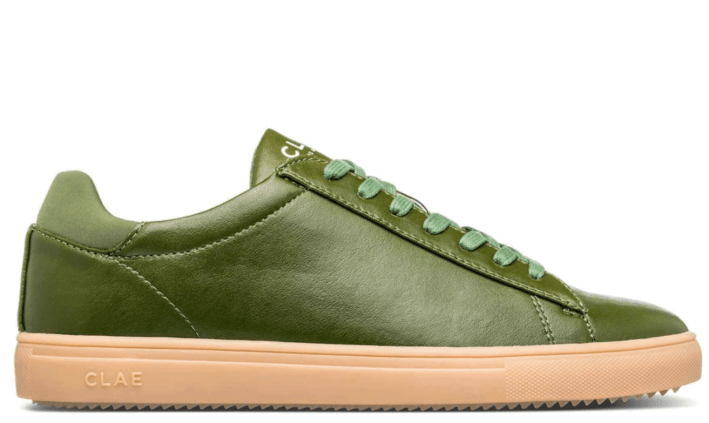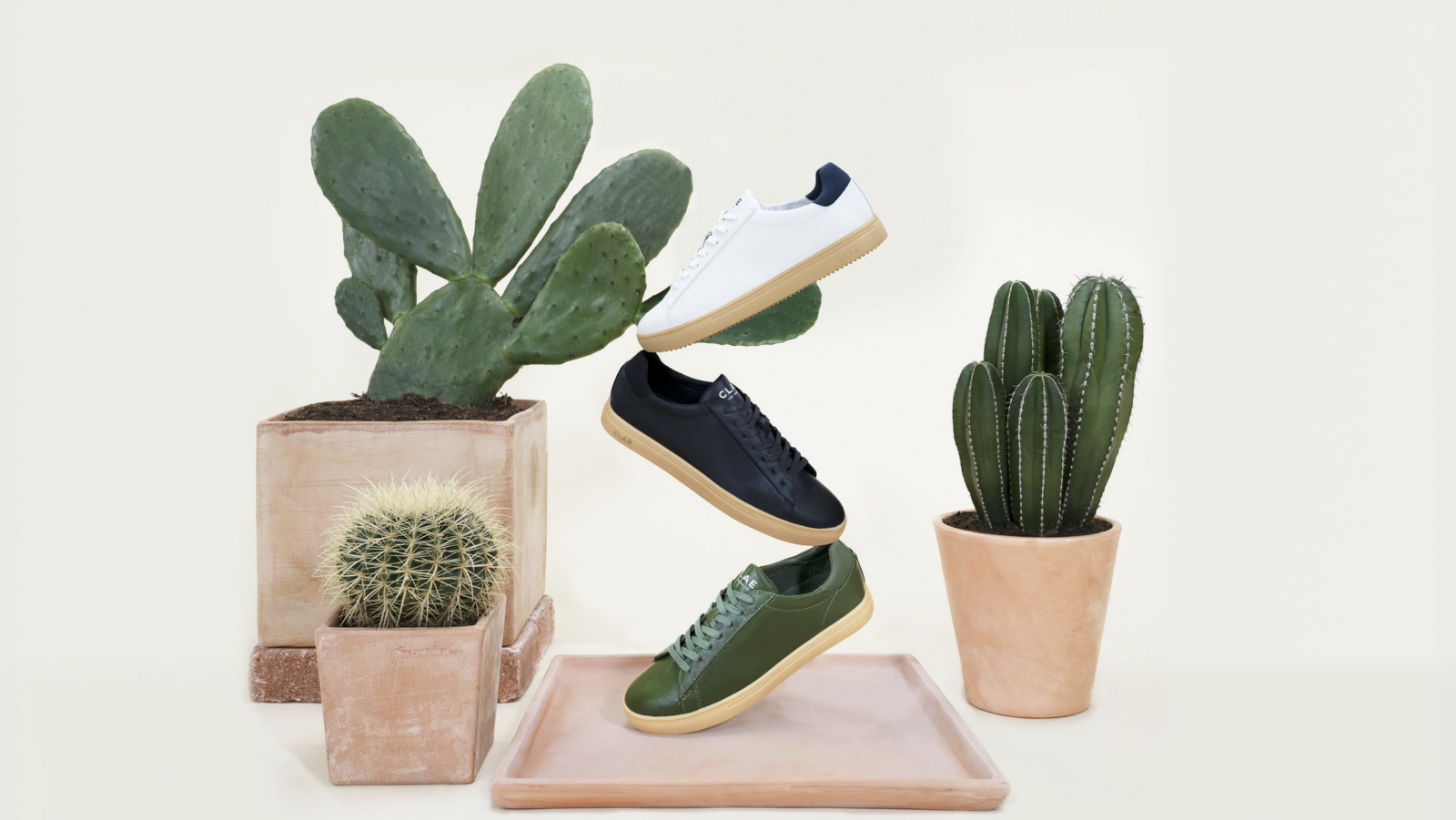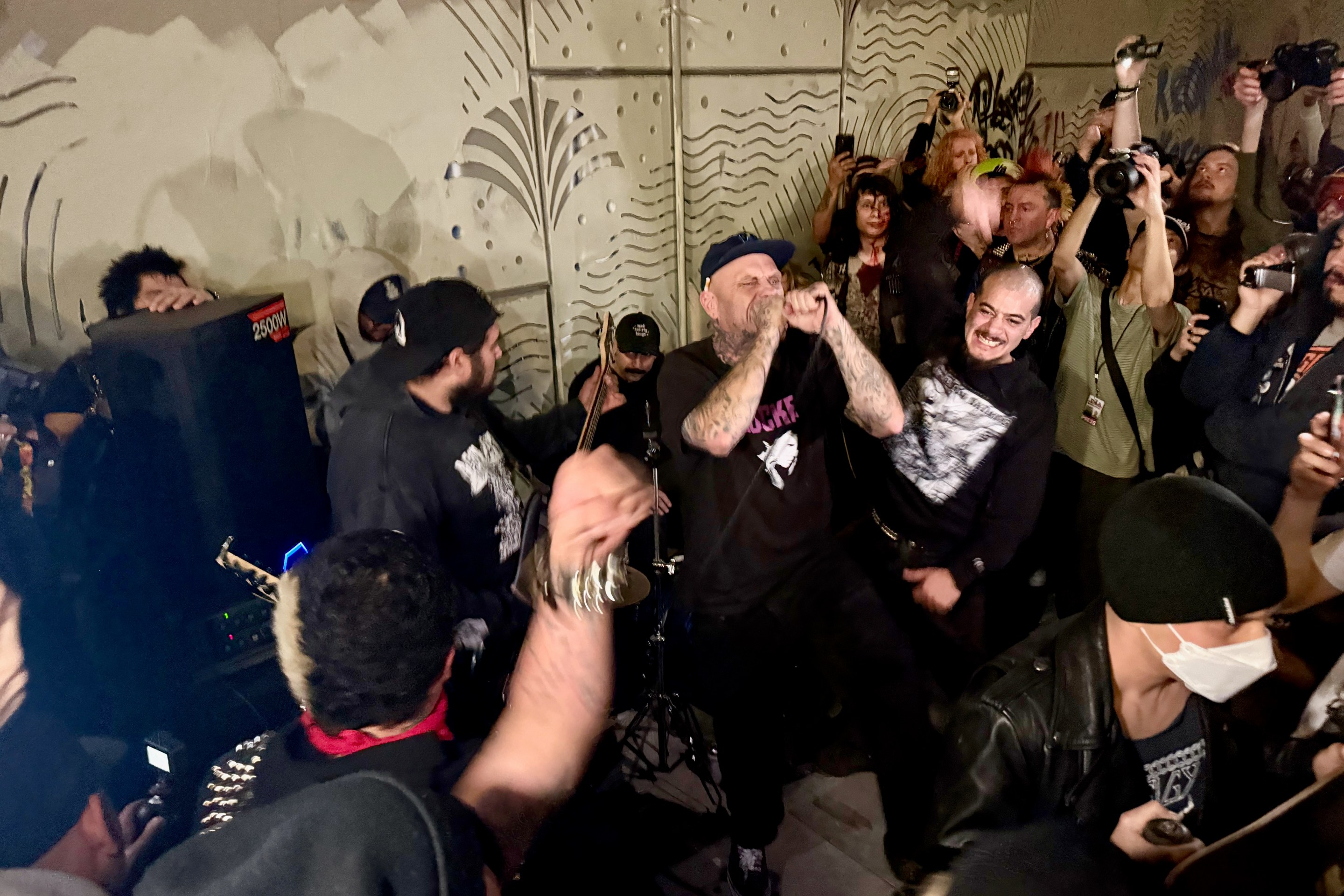[dropcap size=big]G[/dropcap]etting clad in cactus shoes sounds like some bizarre form of rendition left off Wu-Tang’s “Torture” skit. “I’ll fuckin’, I’ll fuckin’… tear spiky paddles off a cactus and make you walk through the Sahara in those shits.”
But for L.A. footwear company Clae, cactus leather is the next innovation it is embracing in a long-range mission to craft more sustainable sneakers. With Earth Day on its mind, the brand just released three colors of a vegan shoe made completely of nopal, aka prickly pear cactus.
And though these cactus kicks go by the title “The Bradley,”— conceivably the whitest name on earth (okay, besides Hadley)—it wouldn’t exist without the ingenious ingenuity of Zacatecans, specifically a nopal-rich company named Desserto and its patented method for making an organic leather-like material out of cactus.
“We discovered this innovation from Desserto on Instagram,” says Jerome Thuillier, CLAE's Brand Director. “It seemed to be a strong innovative alternative to leather.”
Desserto’s vegan leather is forged from the mature leaves of native nopal grown on a ranch 8,000-feet up and fed on nothing but rainwater and Zacatecan soil, leaving the organic cactus alive and intact.
Harvesting is paced at every six to eight months, allowing time for the plants to rejuvenate. A single planting of the perennial tends to survive for about 8 years, vastly reducing the resources and ecological damage used when harvesting annual crops like corn. Cactus not only requires significantly less water than other crops behind vegan leather alternatives, it’s also a nocturnal consumer of atmosphere-devastating CO2.
After harvest, the leaves are sun dried for days before Desserto goes to work on the raw material using a patented process that results in a soft, partially biodegradable, but durable leather alternative that can be used to make handbags, clothes, toxin-free furnishings and auto interiors, and, of course, footwear.
Desserto is the invention of designers Adrián López Velarde (originally from Aguascalientes) and Marte Cázarez (from Guadalajara, where the company is headquartered). Their website offers quick and convincing evidence that nopal leather, among other sustainable alternatives to animal products, addresses a huge number of ecological problems, from reducing Amazon deforestation due to cattle grazing to cutting down on the disgusting levels of wastewater, toxic metals, and airborne pollutants that stem from Earth’s commercial tanneries. The duo has been repeatedly awarded for its environmentally-minded efforts to upturn the fashion industry's unsustainable practices.

For Clae, learning about Desserto’s work was an energizing revelation for a company that already works, in some capacity, with alternative leathers and carbon-neutral, eco-savvy tanneries and suppliers, including wind-and-solar-powered ISA TanTec and SEAQUAL, which makes fibers from ocean waste.
[We’re] joining forces with people, pioneers in their field, who want to offer solutions for a better future,” Clae’s Thuillier notes. “Instead of sitting and looking at all the climate issues as an impenetrable wall, we decided to be part of this community that wants to change things.”
He continues: “As a brand from L.A., and with cactus being part of the landscape of Southern California, we were happy to add this into our burgeoning vegan footwear range.”
The next challenge was turning Desserto’s cactus leather into a Clae style that people could, and would, actually wear. The company, whose sneakers are known for their classic silhouettes, says the process to make actual shoes from cactus leather took almost as long as it did for Desserto to develop their magic fabric.
“Making shoes with cactus is a technical challenge especially in stress points and bonding,” says Clae CEO Jim Bartholet. “Through many adjustments and many generations of the material, we believe we can make very good shoes with cactus.”
Adding to the challenges, Clae’s crew was never able to meet the Desserto team face-to-face due to Covid-19.
“It is crazy to work closely with people for so long, share so much, and actually never meet in person for more than a year,” says Thuillier, who can’t wait visit Zacatecas.
The $150 Bradley Cactus comes in three colors: black, white, and—conceivably the only acceptable shade for a true cactus sneaker— a shiny serrano chile-green with sage green laces. No tuna (cactus fruit)-red in sight at the moment, but the vegan material does look eerily similar to leather.
To increase the sneaker’s overall sustainability, Clae complemented these kicks with laces made from recycled nylon that comes from plastic waste, a 100% natural rubber sole, and a heel-tab of synthetic, non-toxic Neoprene. Like all the brand’s shoes, they come packaged in recycled cardboard.
While the sneaker of the future is still synonymous with the self-lacing high-tops from Marty McFly’s 2015, the kicks of tomorrow may more likely be defined by a leather that stems from simple, abundant Mexican cactus. Or pineapple from the Philippines. Or mycelium pulled out of mushrooms.
Humanity has an urgent need to find alternatives to the creature comforts that have tattered our planet, threatening our species’ own survival, starting with the most vulnerable among us. It offers some small measure of encouragement to see eco-conscious collaborations like this taking place. And would offer even more so should their kind ever be coveted with the same fervor found in the line for Yeezy’s at Flight Club.
“It is our duty and we find no excuse," Thuillier tells TACO. "As citizens, we have learned how to consume better, and as a company, we feel that we have the duty to show the way.”







